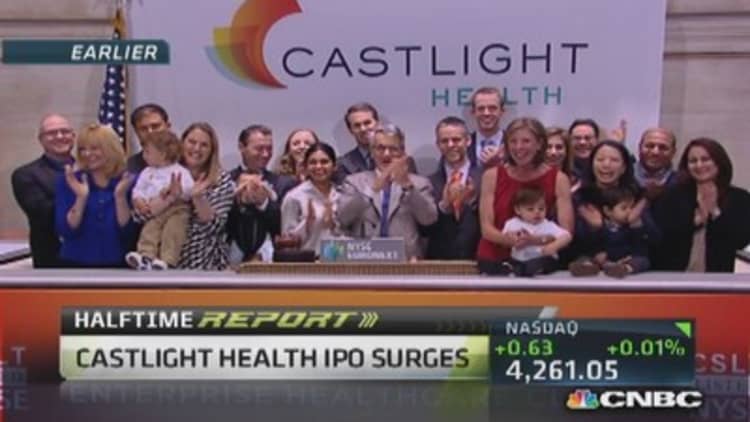The insurance industry will be watching Washington after the market close Monday, when the Obama administration is expected to announce final Medicare Advantage rate cuts for 2015.
The Centers for Medicare and Medicaid proposed a base rate cut of 1.9 percent for the private Medicare Insurance plans in February. The agency has since has come under intense pressure from senior citizen groups, members of Congress and the industry's lobbying arm America's Health Insurance Plans to leave rates unchanged.
"We are focused on the impact the proposed cuts to Medicare Advantage would have on the more than 15 million seniors enrolled in the program," said Robert Zirkelbach, AHIP's spokesman. "Year-over-year cuts to Medicare Advantage put at risk the coverage seniors like and rely on today," he said.
Humana and United Health dominate in the private Medicare plan market. Combined, the two insurers account for roughly 40 percent of enrollees.
For Humana, the rates are critical. The program represented two-thirds of the firm's revenue in 2013. In February, Humana officials calculated that the proposed rate would result in a net reimbursement reduction of 3.5 percent to 4 percent when other rate adjustments are added in, well below its prior internal estimates.
Read MoreHealth insurance tough sell for young? Blame mom and dad
Humana shares turned positive for the year in February, surging to new highs, following CMS' initial rate proposal. For investors, the question is whether the stock has already priced in the good news.
Analysts now expect CMS' final rate decision could be slightly less negative than the proposed cut—a net reduction of 3 percent to 5 percent—which is already less severe than last year's reduction, which saw a net reimbursement cut of more than 6 percent.
"Whether rates fall 3 percent or 4 percent doesn't have a real material impact on profitability in 2015," Citi Research analyst Carl McDonald said in a note to clients. "All the bigger rate cut means is that plans have to adjust benefits or provider networks a little more than otherwise would have been the case."
Read More Employer health plan in 2025? Don't count on it
In most cases, insurers raised premiums in 2014 to compensate for the CMS cuts. Medicare Advantage enrollees saw an average premium increase of 14 percent, or about $5 per month, according to a Kaiser Family Foundation study.
Despite predictions from the industry that seniors would lose access to the private plans due to the cuts, industry analysts calculate that overall enrollment in Medicare Advantage this year grew nearly 9 percent from 2013.

Leerink analyst Ana Gupte said she expects much of the news on rate expectations may already be priced in for shares of the Medicare Advantage players. While negative reversal from CMS would pressure the sector, she calculated the odds that final rates would be worse than initially proposed at 9 to 1.
"We see the bear case of no change to the Advance rate notice … at 10 percent probability and expect stocks would sell off on that scenario," she said.
Read More Hospital cuts out the middleman and sees success
In addition to Humana and United Health, she expects Universal American, Wellcare Group and Cigna are the names that would be most affected by Monday's decision.
But this won't be the last year that insurers will have to contend with tense rate decisions. Under the Affordable Care Act, the program was supposed to see $200 billion in cuts over 10 years starting in 2011, in order to help fund subsidies for Obamacare exchange plans.
The cuts represent a rollback of the higher reimbursement rate the private plans have enjoyed—at one point 14 percent—over traditional Medicare plans, in which the government pays providers directly. Eventually, the law envisions the two programs reimbursed at the same rate.
—By CNBC's Bertha Coombs.


